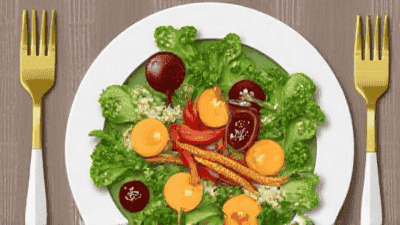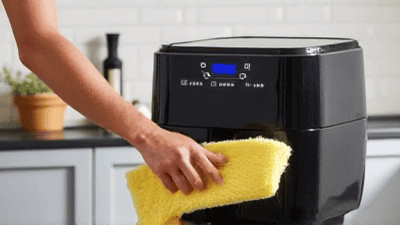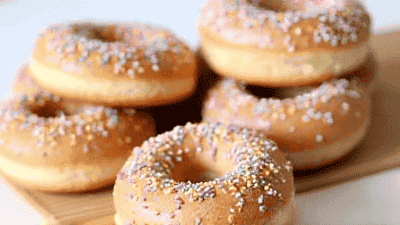Baking Tools Guide: From Beginner to Pro
Baking is both an art and a science, allowing you to create delightful treats that can impress family and friends. Whether you are new to baking or have experience under your apron, having the right tools is essential for achieving successful results.

Baking is both an art and a science, allowing you to create delightful treats that can impress family and friends. Whether you are new to baking or have experience under your apron, having the right tools is essential for achieving successful results.
Understanding the Importance of Baking Tools
1. Precision in Baking
Baking requires precise measurements and techniques. The right tools help ensure that every ingredient is measured accurately, resulting in consistent outcomes.
2. Efficiency
Quality baking tools streamline the process, making it easier and faster to prepare your favorite recipes. Investing in the right equipment can minimize effort and save you time in the kitchen.
3. Enjoyment
Having the appropriate tools can make the baking process more enjoyable. When you feel equipped and prepared, you are more likely to experiment and explore new recipes, leading to greater satisfaction.
4. Safety
Using the proper tools not only helps you achieve better results but also enhances safety in the kitchen. Good-quality equipment minimizes the risk of accidents and ensures a smoother workflow.
Essential Baking Tools for Beginners

If you are new to baking, start with a solid foundation of essential tools. Here’s a list of must-haves for any beginner baker:
1. Mixing Bowls
Invest in a set of mixing bowls that come in various sizes. These bowls are essential for mixing dough, batter, and other ingredients. Look for bowls made from glass, stainless steel, or ceramic, as they are sturdy and easy to clean.
2. Measuring Cups and Spoons
Accurate measurements are crucial in baking. A set of dry measuring cups (for flour, sugar, etc.) and liquid measuring cups (for water, milk, etc.) is essential. Additionally, a set of measuring spoons will help you measure smaller quantities of ingredients.
3. Whisk
A whisk is an invaluable tool for incorporating air into your mixtures. It is perfect for beating eggs, whipping cream, or mixing dry ingredients. Look for a sturdy whisk with a comfortable handle.
4. Rubber Spatula
A rubber spatula is essential for scraping bowls and folding ingredients. Choose a heat-resistant silicone spatula that can withstand high temperatures.
5. Wooden Spoon
A classic wooden spoon is perfect for mixing and stirring. It is non-reactive, making it safe for use with acidic ingredients. A sturdy wooden spoon is a staple in any baker's toolkit.
6. Baking Sheets
Baking sheets are essential for cookies, pastries, and roasting vegetables. Choose heavy-duty, non-stick baking sheets for even heat distribution. Depending on your baking style, flat sheets with edges (cookie sheets) and deeper pans are both useful.
7. Parchment Paper
Parchment paper prevents sticking and simplifies cleanup. It is essential for lining baking sheets and cake pans. Opt for unbleached, food-safe parchment paper.
8. Rolling Pin
A rolling pin is crucial for rolling out dough for pastries, cookies, and breads. Traditional wooden rolling pins work great, but you may also find silicone or marble versions that are easy to clean.
9. Cake Pans
A set of round or square cake pans is necessary for layered cakes. Choose heavy-duty, non-stick options for optimal results. Consider investing in various sizes, such as 8-inch, 9-inch, and 6-inch pans.
10. Oven Thermometer
An oven thermometer ensures that your oven temperature is accurate, preventing over-baking or under-baking. Many ovens can be off by as much as 25 degrees, so a reliable thermometer is a worthwhile investment.
Intermediate Baking Tools
Once you feel comfortable with the essentials, you can expand your toolkit with intermediate tools that help you explore a wider range of recipes and techniques.
1. Stand Mixer
A stand mixer is a game-changer for serious bakers. It takes the labor out of dough mixing, beating, and whisking. Look for a model that includes various attachments, such as a paddle, whisk, and dough hook.
2. Hand Mixer
If a stand mixer is not within reach, a hand mixer is a compact alternative that is also effective. It allows you to mix batter, cream, and other mixtures with ease.
3. Food Processor
A food processor can simplify tasks such as chopping nuts, making pie crusts, and blending batters. While not strictly necessary for baking, it can streamline your preparation time.
4. Silpat Mat
A Silpat mat is a reusable silicone baking mat that creates a non-stick surface on baking sheets. It is perfect for baking cookies and pastries without added grease.
5. Sifter
A sifter is essential for aerating flour and removing lumps. It results in lighter pastries and cakes. A hand-crank or a fine-mesh sieve can also serve this purpose.
6. Bench Scraper
A bench scraper is useful for working with dough, scraping surfaces, and portioning ingredients. It is an indispensable tool for bread and pastry bakers.
7. Cooling Rack
Cooling racks allow your baked goods to cool evenly and prevent them from becoming soggy. Choose racks that are stackable for convenient storage.
8. Cake Tester
A cake tester is a thin, pointed tool that helps you check the doneness of cakes and muffins. A toothpick can substitute for a cake tester in a pinch, but having a dedicated tool is handy.
9. Pastry Brush
A pastry brush is perfect for glazing baked goods or brushing an egg wash onto pastries. It can also be helpful when applying melted butter or oil to dough.
10. Digital Scale
A digital kitchen scale is an excellent tool for precise measurements. Some bakers prefer weighing ingredients over measuring by volume for enhanced accuracy.
Advanced Baking Tools for Professionals

As you gain experience and confidence in your baking skills, you may want to explore advanced tools that allow for more sophisticated techniques and creations:
1. Baking Stone
A baking stone is ideal for creating restaurant-quality pizzas and bread. It retains heat efficiently, promoting even cooking and a perfectly crispy crust.
2. Dough Proofer
A dough proofer provides the perfect environment for yeast dough to rise. It maintains optimal temperature and humidity levels, which are crucial for yeast fermentation.
3. Food Dehydrator
For those interested in creating dried fruits or homemade snacks, a food dehydrator is an excellent investment. It uses low heat to remove moisture, preserving the flavor and nutrients.
4. Sugar Thermometer
A sugar thermometer is useful for candy-making and caramelizing sugar. It accurately measures temperatures, helping you to create confections with precision.
5. Whipped Cream Dispenser
This tool allows you to create whipped cream or foam using gas cartridges. It’s handy for making desserts and adding flair to presentation.
6. Chocolate Tempering Machine
If you plan to work with chocolate regularly, a chocolate tempering machine will help you achieve a smooth and glossy finish by controlling the temperature.
7. Leveling Tool
A leveling tool is perfect for creating even layers in cakes and pastries. It can also help portion dough for consistent sizes.
8. Baking Strips
Baking strips are helpful for ensuring even baking in cakes. They insulate the edges of your pan, minimizing doming and promoting uniform cooking.
9. offset Spatula
An offset spatula is ideal for frosting cakes and lifting delicate pastries. The angled blade allows for smooth spreading and precision.
10. Pastry Wheel
A pastry wheel aids in cutting dough into perfect shapes for cookies or pastries. It is particularly useful for decorative pie crusts.
Baking Techniques for Success
1. Measuring Ingredients
Accurate measurement is the first step to successful baking. Use appropriate measuring tools for dry and liquid ingredients and ensure consistency by following the recipe closely.
2. Room Temperature Ingredients
Many baking recipes call for ingredients to be at room temperature. This promotes better mixing and ensures even baking. When possible, take your ingredients out of the refrigerator ahead of time.
3. Mis-en-place
"Mis-en-place" is a French term meaning "everything in its place." Before you begin baking, measure, chop, and organize all ingredients to streamline your workflow.
4. Preheating the Oven
Always preheat your oven before placing your baked goods inside. This ensures even cooking and accurate baking times.
5. Baking Times
Follow the recipe for baking times but also understand your oven may vary. Use a toothpick or cake tester to ensure doneness, inserting it into the center of baked goods.
6. Avoiding Overmixing
When combining your ingredients, avoid overmixing, as this can lead to tough textures. Mix just until combined, especially when working with flour and wet ingredients.
7. Cooling Baked Goods
Allow baked goods to cool in the pan for a few minutes before transferring them to a cooling rack. This helps maintain texture and stability while preventing sogginess.
Troubleshooting Common Baking Issues

1. Cakes Not Rising
If cakes do not rise, check that your baking powder or baking soda is fresh and that you followed the recipe precisely. Ensure your oven is at the correct temperature.
2. Soggy Bottoms
If your baked goods have a soggy bottom, ensure you are using enough flour, or consider placing them on a baking stone or directly on the oven rack.
3. Dry or Crumbly Baked Goods
Overbaking or an incorrect ratio of ingredients can lead to dryness. Follow the recipe’s instructions closely, and consider using a kitchen thermometer to monitor baking times accurately.
4. Uneven Browning
If baked goods brown unevenly, rotate the baking sheet halfway through the baking process to promote even cooking toward the edges and center of the pan.
5. Cracking Cakes
Cracking can be a result of too much leavening or the cake being placed in a too-hot oven. Lowering the temperature and gradually raising it while baking can help prevent this issue.
Conclusion
In summary, having the right baking tools is crucial for achieving success in the kitchen, whether you are a beginner or an experienced baker. By investing in essential tools, learning foundational techniques, and understanding how to troubleshoot common issues, you will elevate your baking skills and create a range of delicious treats.
From the basic measuring cups to advanced equipment, each tool serves a purpose that will enhance your baking experience. Embrace the journey of baking, and let your creativity flourish as you explore new recipes and techniques.




